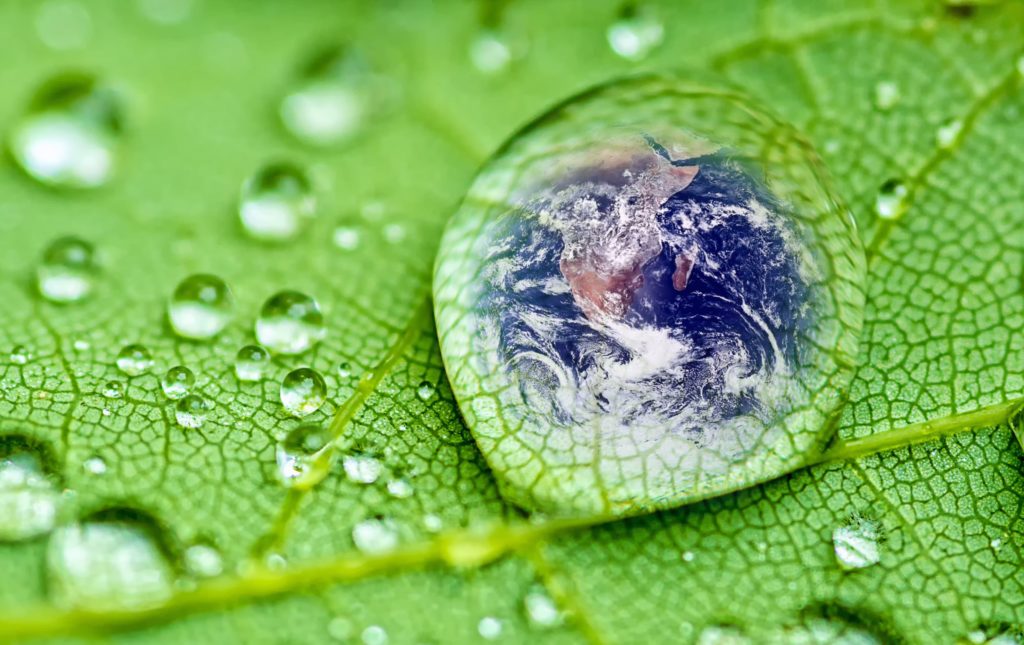What Makes a Mattress Eco-Friendly?

Consumers today are more dedicated to purchasing products that are made with eco-friendly practices than at any other time in our history. Unfortunately, consumers aren’t equally educated about what it truly means for products to be eco-friendly — especially in light of all the “greenwashing”, or deceptive claims of “green practices” in advertising today.
When it comes to something as intimate as the mattress you sleep on one-third of every day (that is more time than people spend in their cars, and often as much, if not more, time than they spend in office chairs), you want to know you’re getting a product that is good for you as well as for the planet.
These are some of the things that define a mattress as eco-friendly.
Materials
Not only are the things that go into a mattress important for determining how eco-friendly the mattress happens to be, so are the things you don’t find in the mattress. Among the top contenders for non-eco-friendly materials to find in mattresses are the following:
- Volatile Organic Compounds (VOCs)
- Polybrominated Diphenyl Ethers (PBDEs)
- Heavy metals
- Emissions
- Chlorofluorocarbons (CFCs)
- Formaldehyde
- Chloroform
- Cyanide
- Toxic materials
- Excessive waste
Now that you know what you won’t find in eco-friendly mattresses, it is time to consider the materials you will find in them. They include:
- Organic or natural cotton
- Organic or natural wool
- Organic or natural latex
Not only will the mattress maker inform you about the organic materials used in the mattress, manufacturers with nothing to hide will offer certifications related to their mattresses as well as access to clear and unhindered documentation related to source materials used to make their mattresses. In other words, mattress makers who have honestly eco-friendly mattresses have no problem providing evidence to consumers interested in purchasing eco-friendly products.
Manufacturing
The eco-friendly moniker isn’t limited to the materials that go into making the mattress. In fact, it relates to almost everything about the mattress. This includes the way in which the mattress is manufactured.
Natural latex mattresses are manufactured in one of two ways, for instance. It is made either with the Talalay or Dunlop manufacturing method, each one offering numerous economic benefits, and taking limited tolls on the planet. The Talalay method isn’t as eco-friendly, per se, as the Dunlop method, but each one creates different types of latex layers once complete. Many mattress makers utilize a Dunlop core for unsurpassed support, and Talalay comfort layers for a cloud-like experience as you sleep.
Neither manufacturing method introduces petrochemicals into the process, and both operate with minimal impacts on the planet, making them both eco-friendly choices for making mattresses. Purchasing latex mattresses made by either or both of these methods allows you to buy with confidence that the making of your new mattress did not harm the planet.
Certifications
Of course, mattress makers and companies can tell you how great they are for the planet until they are blue in the face. That doesn’t make it so. You need proof that goes beyond the press blurb. You need to know that the mattress you’re bringing into your home, and introducing to your family, is safe for all to use.
Certifications from independent certifying agencies are great tools to help consumers, such as yourself, know that you’re getting the real deal when it comes to healthy, planet-friendly mattresses.
Natural latex mattresses from Eco Terra Beds have passed the rigorous standards for organic cotton and organic wool certifications from Global Organic Textile Standards (GOTS). Not only does GOTS offer certification for the responsibility to the planet with which these mattresses are made, it also addresses social responsibility in the manufacturing process.
The bottom line is that certifications, like GOTS, help consumers understand which brands are using eco-friendly processes to source, manufacture, and deliver their goods.
Recyclability, Durability, Longevity, and More
The ability to recycle something completely is one of the defining characteristics of what it means to be eco-friendly. The more parts and pieces of something that can be easily recycled, the better it is for the planet.
Natural latex mattresses are made of botanical latex foam. Since no petrochemicals are used in the manufacturing process, there is nothing to harm the planet in the recycling process.
But recycling isn’t the only component of an earth-friendly product. The adage is “Reduce, reuse, and recycle.” Of course, creating a product that is built to last, in this day and age, is rare indeed. While most mattresses last approximately seven years before finding their way into local landfills, natural latex mattresses are covered by warranty for a full 15 years. That’s more than double!
Even better, is that some mattresses last even longer than the warranty. This means you can purchase mattresses that grow with your children, and then give them new life by gifting them to others, or recycling them down the road.
Delivery Methods
Some mattresses are made in other countries to reduce the costs of manufacturing. They then make long journeys across the ocean to get to the United States where they are transported on large vehicles from one coast to the rest of the country. This method of delivery is taxing on the planet, and undoes much of the good that goes along with choosing eco-friendly mattresses in the first place.
Instead, seek out mattresses that are made in the USA. This cuts out on much of the planetary costs of shipping the mattresses, and allows buyers to feel more confident about their earth-friendly buying decisions.
Eco Terra hybrid latex mattresses have a lot to offer eco-friendly buyers when it comes to luxurious comfort and peace of mind. Buy one today, and experience the difference these amazing mattresses can have on your ability to get a great night’s sleep.







